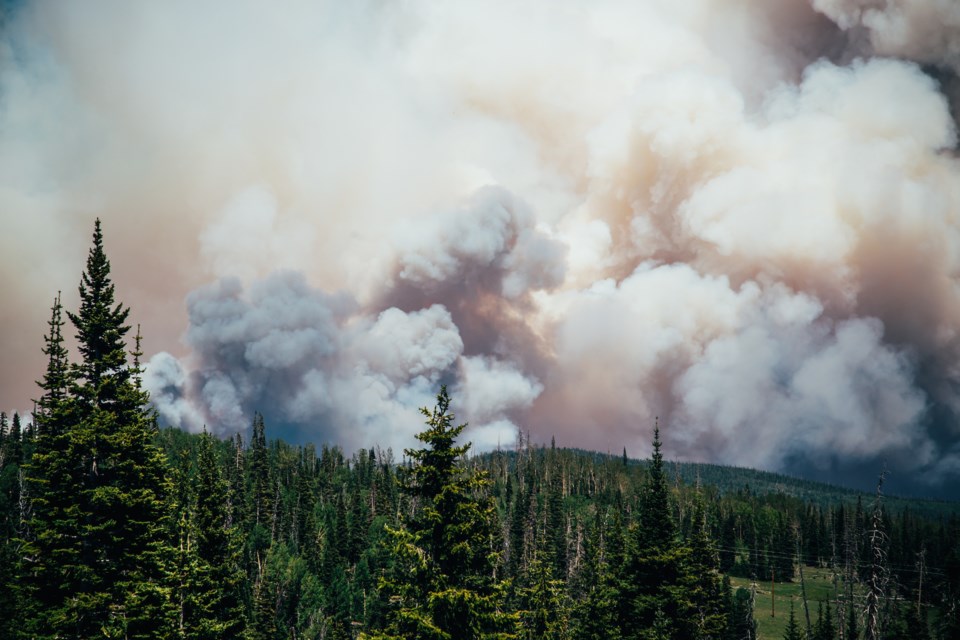Active forest fires in northwestern Ontario as well as eastern Manitoba have led to an air quality statement being issued by Environment Canada this morning.
"Smoke plumes from active fires in northwestern Ontario and eastern Manitoba will continue through Monday resulting in deteriorated air quality across much of Northern Ontario," the statement said. "Low visibilities can also be expected, particularly in areas closer to the fires."
A shift in wind direction, to a more northernly direction, as a cold front passes through means that conditions are expected to improve by late-day Monday.
The statement is in effect for:
- Agawa - Lake Superior Park
- Blind River - Thessalon
- Elliot Lake - Ranger Lake
- Sault Ste. Marie - St. Joseph Island
- Searchmont - Montreal River Harbour - Batchawana Bay
- Wawa - Pukaskwa Park
- White River - Dubreuilville
Following the statement being issued, Algoma Public Health also issued a statement on the conditions.
"Common, mild symptoms of smoke exposure include sore and watery eyes, runny nose, scratchy throat, mild coughing, or headache,” said Nicole Lindahl from Algoma Public Health in a prepared statement. “People at higher risk may have more serious symptoms, like shortness of breath, severe wheezing or coughing, chest pain, or heart palpitations. Anyone with these severe symptoms should seek prompt medical care.”
The people most at risk are:
- Children
- Elderly
- Pregnant women
- Anyone with a heart or lung condition
- Anyone doing strenuous exercise or work
Some ways to reduce risks during potential exposure are:
- Limit or avoid outdoor activity and strenuous physical activities
- At home and in vehicles, keep your windows closed and set the ventilation system to recirculate
- If you have asthma, COPD, or other breathing problems use your medication as prescribed by your doctor, and seek medical care if needed
- Note: wearing a cloth or medical mask helps prevent infection from COVID-19, but these masks do not provide protection from wildfire smoke
